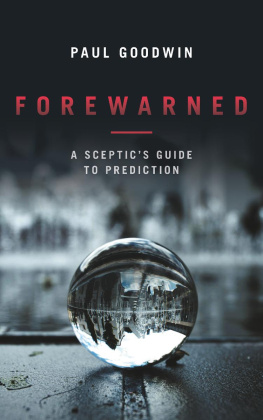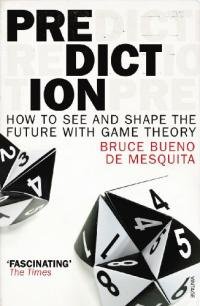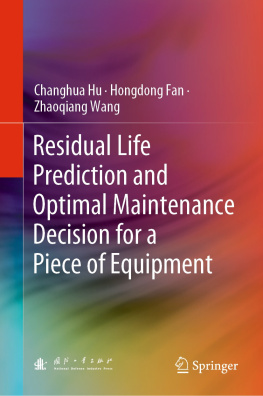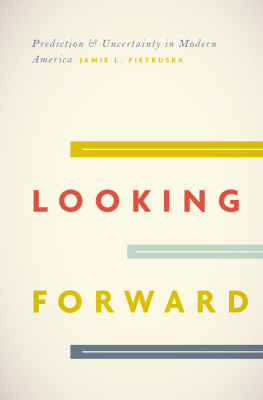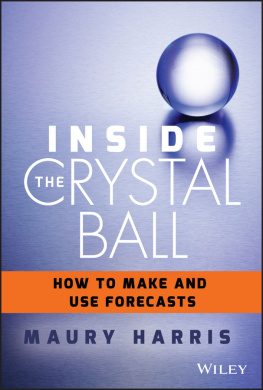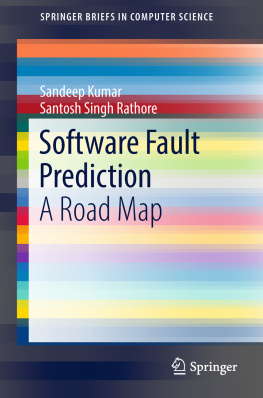M y hairdresser wondered if they were pumping something into the atmosphere whoever they were.
Every time I turn on the TV news, he said, theres another shock. The thing you least thought would happen, happens. Recently, everything seems to be unpredictable.
We were speaking a few days after Brexit, Britains momentous decision to leave the European Union after more than forty years. In the hours before the first results were declared, the British pound had surged on the international markets in the anticipation of a vote to remain. Even Nigel Farage, the beer and nicotine-loving long-term enemy of the EU, had conceded: The Remain side have edged it. Yet by the morning Farage was celebrating that his lifes work was complete and calling for 23 June to be declared Britains Independence Day.
It wasnt just the Brexit vote, the hairdresser pointed out. Leicester City, an inexpensive team of journeymen, had recently broken the boring oligopoly of wealthy soccer clubs whod assumed joint ownership of Englands Premiership league title. Leicester had won the championship as 5,000-to-1 outsiders. And in the European Championships, England, a team of millionaires, had been kicked out of the competition by tiny Iceland, coached by a part-time dentist.
Then there was the rise and rise of Donald Trump towards the possible presidency of the US. Trump was initially seen as a joke candidate; each outrageous utterance he made should surely in ordinary times have resulted in his political suicide. Instead, buoyed by sensational publicity, he became the presumptive candidate for the Republican Party. Of course, the situation only escalated when Trump defeated Hillary Clinton to become the 45th President. A 5 triple bet on Leicesters triumph, Brexit and Trumps victory would have won you 15 million Paddy Power put the odds at 3 million to 1!
It was as if the normal laws of predictability were breaking down, as if physical certainties like gravity or time had started to behave in odd ways. Who would have thought it? Nationalists wiped the Labour Party off the political map in Scotland, Labours most rebellious Member of Parliament, Jeremy Corbyn, was crowned the partys leader and a host of predictably nice former TV celebrities were jailed for sexual crimes. And, in what seemed like the recent past, bastions of apparent commercial stability like Lehman Brothers and Woolworths crashed like mountains into an ocean of economic turmoil.
Perhaps it was always like this: todays shock is tomorrows norm. The outbreak of two world wars in the twentieth century now seems unsurprising given the rationalisation of hindsight, yet they must have seemed incredibly shocking at the time. A quarter of a century on, the rapid, and relatively peaceful, dissolution of the Soviet Union and the end of the Cold War seem to have been inevitable, but then I remember the stomach-churning fear I felt as a child when the Cuban Missile Crisis dominated the news: we were told it would take only four minutes for everything to come to an end. During the turbulent 60s, our worlds fragile existence seemed dependent on the whims and enigmatic calculations of distant politicians.
The besieged forecaster
Whether the world is becoming more unpredictable or not, these shocks are great for TV newshounds and audience ratings. But they reflect badly on the forecasters who are supposed to predict what is going to happen. I was careful not to let it slip to the hairdresser that Id worked in forecasting for years. I recalled all too well the comments of a US immigration official who asked me why I was visiting America.
To speak at a forecasting conference, I replied, expecting him to be impressed.
What are yer forecasting the weather?
No, my talks about sales forecasting.
Oh I used to do that. Its a load o trash. Yer may as well toss a coin, mightnt you?
Jet-lagged, and concerned that he might not let me into the country, I agreed with alacrity and inserted a false laugh to signify we were both sharing the same mischievous secret. Looking back, he probably saw me as some sort of con man on a junket bound for America to spout rubbish dressed up as science.
Being attacked in this way goes with the territory of being a forecaster. Never trust an economic forecast, advised the headline of an article by the Financial Times columnist Tim Harford, before listing a series of apparently grossly overoptimistic or over-pessimistic forecasts for the UK economy since 1995. In the Eurozone, he added, forecasting over the past few years has been so wayward that it is kindest to say no more.
Whoops: economic forecast wrong within weeks, announced a headline in the Huffington Post arguing that the USAs Congressional Budget Office forecasts were no better than wild guesses. Lawson was mainly reacting to the failure of economic forecasters to anticipate the 40 per cent drop in world oil prices that had occurred since June of that year.
Even the Queen hinted at her royal disapproval of economists for their failure to predict the catastrophic events of 2008, when the entire banking system in many countries teetered on the brink of total collapse. While visiting the London School of Economics to open a new building she was given a briefing on the causes and effects of the credit crisis. Why did nobody notice it? If these things were so large how come everyone missed it? she asked.
In Britain the popular BBC weatherman Michael Fish was never allowed to forget his forecast of October 1987 when he said: Earlier on today, apparently, a woman rang the BBC and said shed heard there was a hurricane on the way. Well, if youre watching, dont worry, there isnt. By the following morning people in the south-east of England were recovering from the worst storm in 300 years. It caused widespread damage to buildings, brought down thousands of trees and killed at least nineteen people.
It was a pity for Fish. Looking like a convivial university don, he had a penchant for making appearances on light entertainment shows, and had joined the Met Office in 1962. By the time he made his fateful broadcast hed had a quarter of a century in the forecasting business. A colleague described him as the last of the true weathermen [who] can actually interpret the skies he can do the weather forecast the hard way nowadays most of the decisions are made by the computer. In his time he must have been involved with thousands of forecasts and the vast majority of these were probably accurate. But most people will only recall the rare forecasts that are regarded as spectacular failures. Get a thousand forecasts right but one very wrong and youll probably be judged by that single forecast. In forecasting, reputations are hard won, but very easily lost.
In this case, perhaps not totally lost. Now Fish appears to revel in the attention that his famous broadcast attracted. A video of it appears on his website, where hes described as a national treasure. You can even buy Michael Fish Retro Weather fridge magnets, as well as Michael Fish Weather Changing mugs.
Some forecasters suffer more than a mere blasting from newspaper columnists or royalty they get sent to jail.
The central Italian city of LAquila lies in a region where there are major faults in the earths crust and is near where the African and Eurasian tectonic plates are colliding. It saw at least seven earthquakes between 1315 and 1706. The city is also built on the bed of an ancient lake, resulting in a soil structure that exacerbates the effect of any seismic activity. In early 2009 the region around LAquila began to be affected by minor earthquakes, causing anxiety for local people who wanted to know what these tremors portended.

